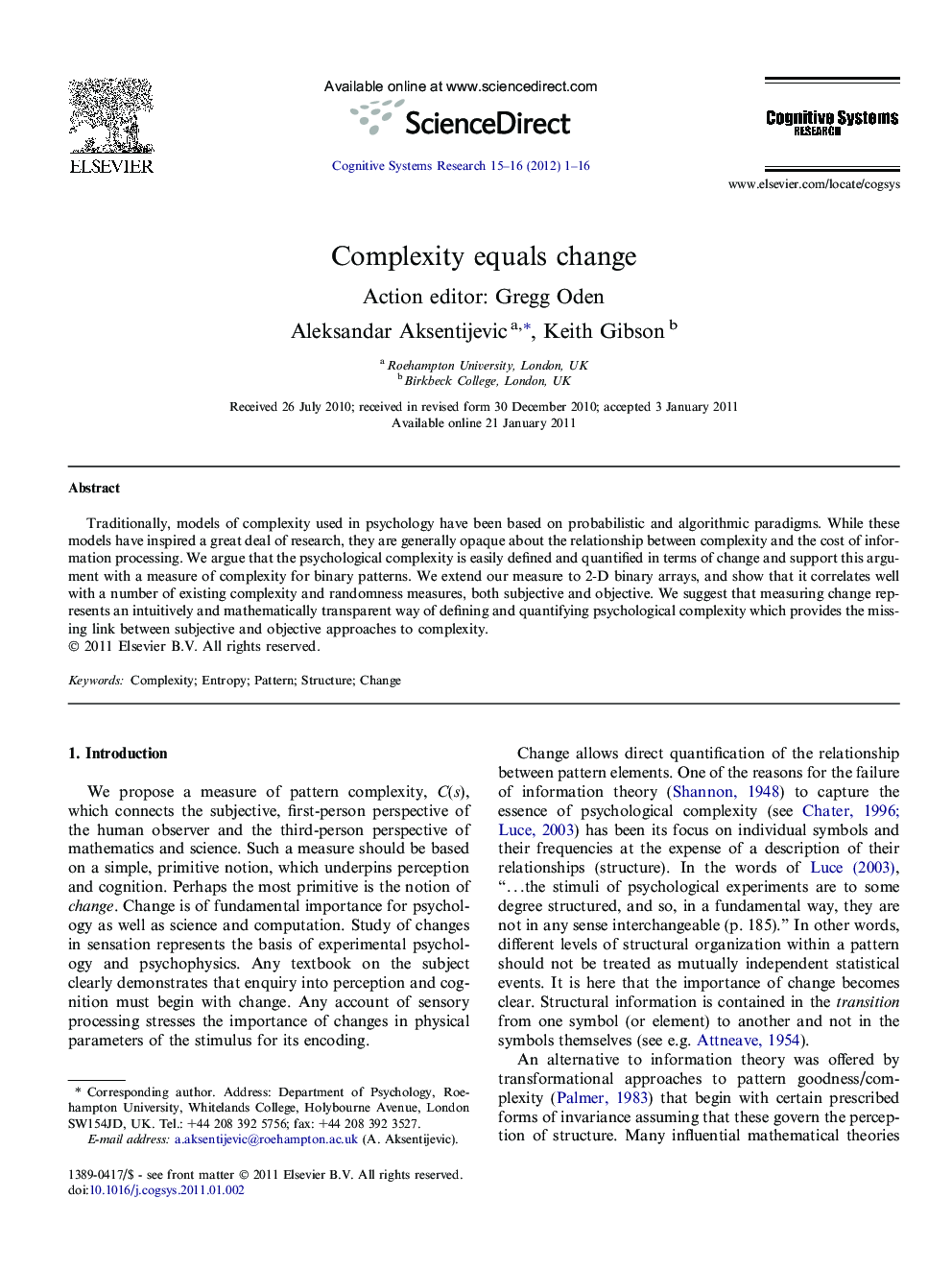| Article ID | Journal | Published Year | Pages | File Type |
|---|---|---|---|---|
| 378504 | Cognitive Systems Research | 2012 | 16 Pages |
Traditionally, models of complexity used in psychology have been based on probabilistic and algorithmic paradigms. While these models have inspired a great deal of research, they are generally opaque about the relationship between complexity and the cost of information processing. We argue that the psychological complexity is easily defined and quantified in terms of change and support this argument with a measure of complexity for binary patterns. We extend our measure to 2-D binary arrays, and show that it correlates well with a number of existing complexity and randomness measures, both subjective and objective. We suggest that measuring change represents an intuitively and mathematically transparent way of defining and quantifying psychological complexity which provides the missing link between subjective and objective approaches to complexity.
